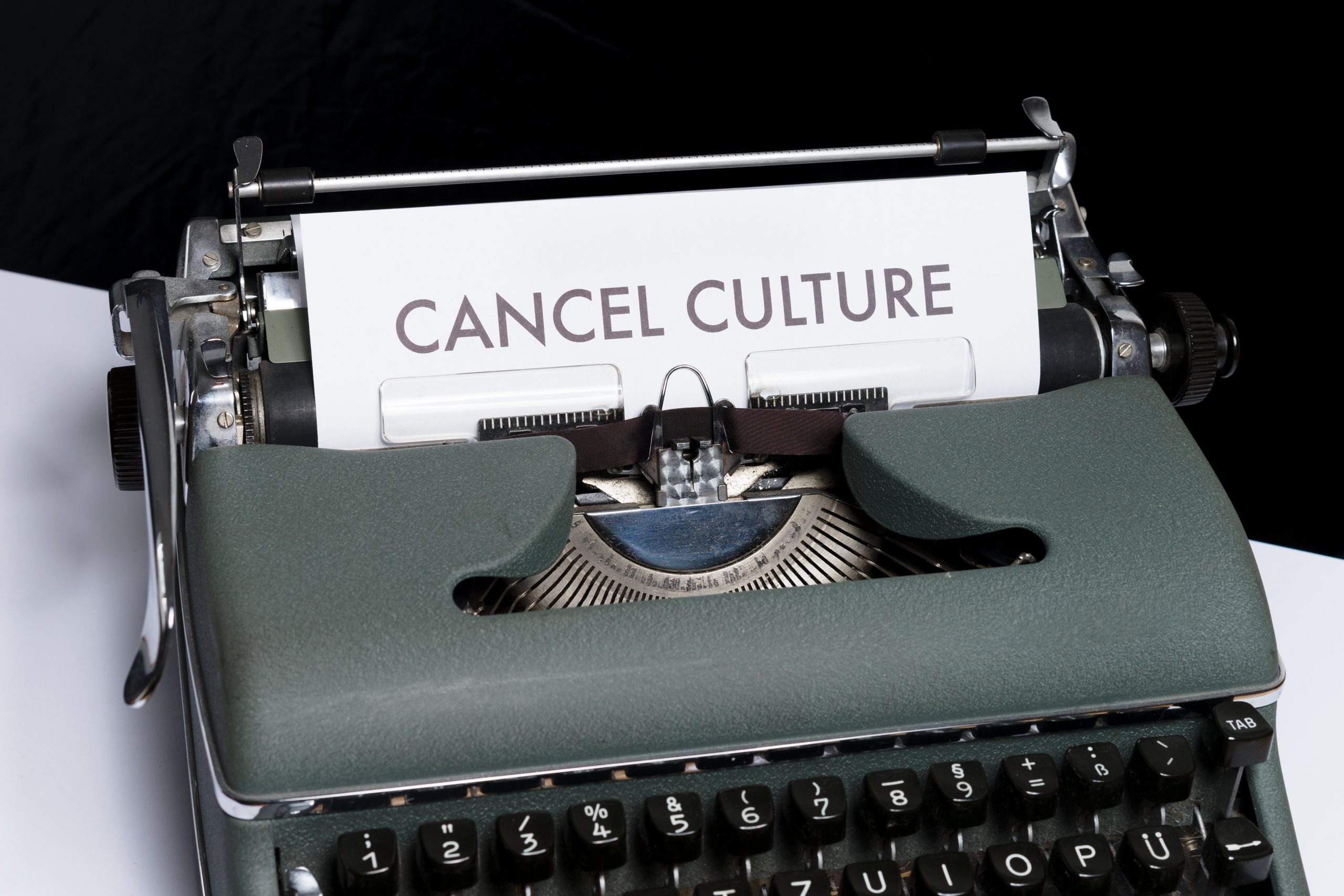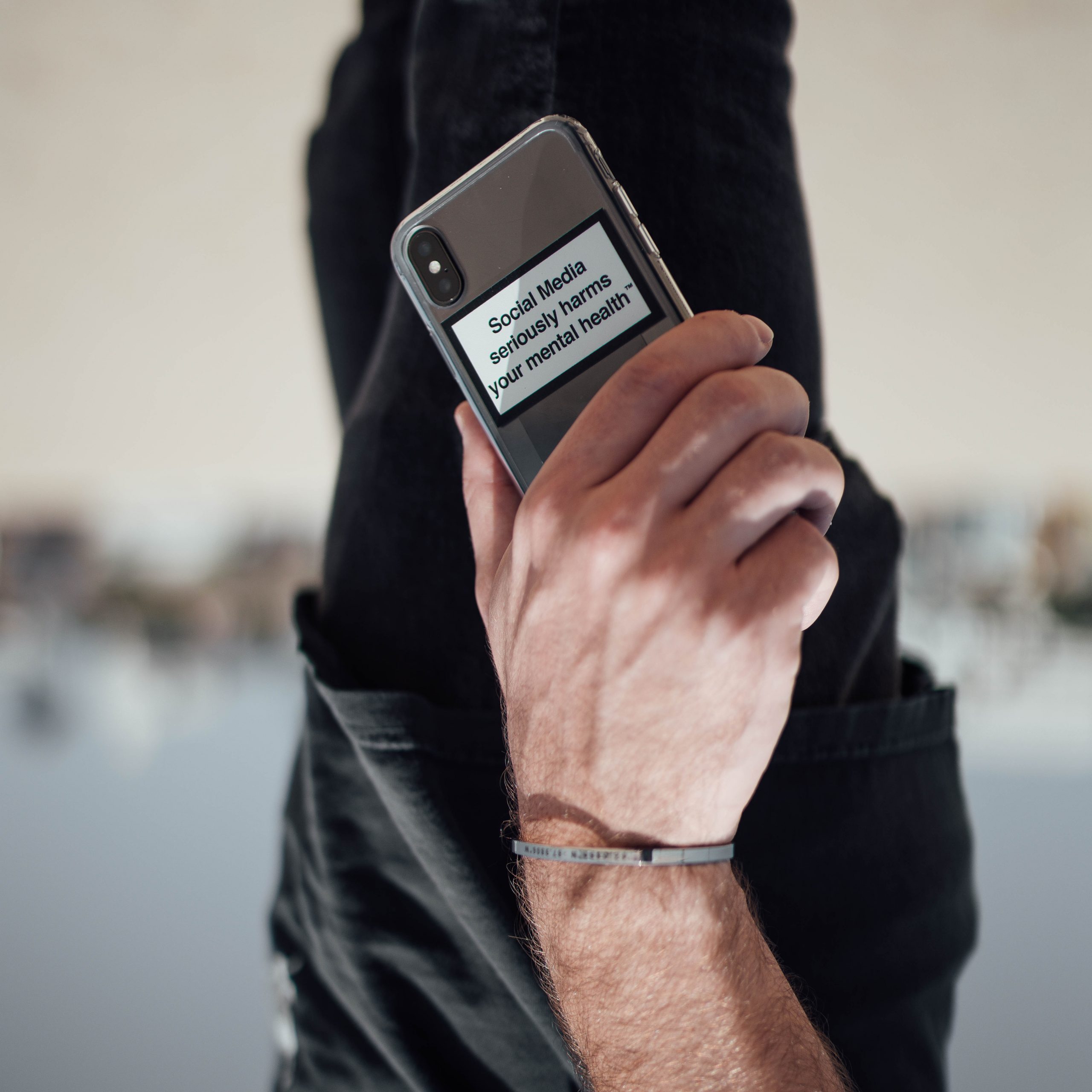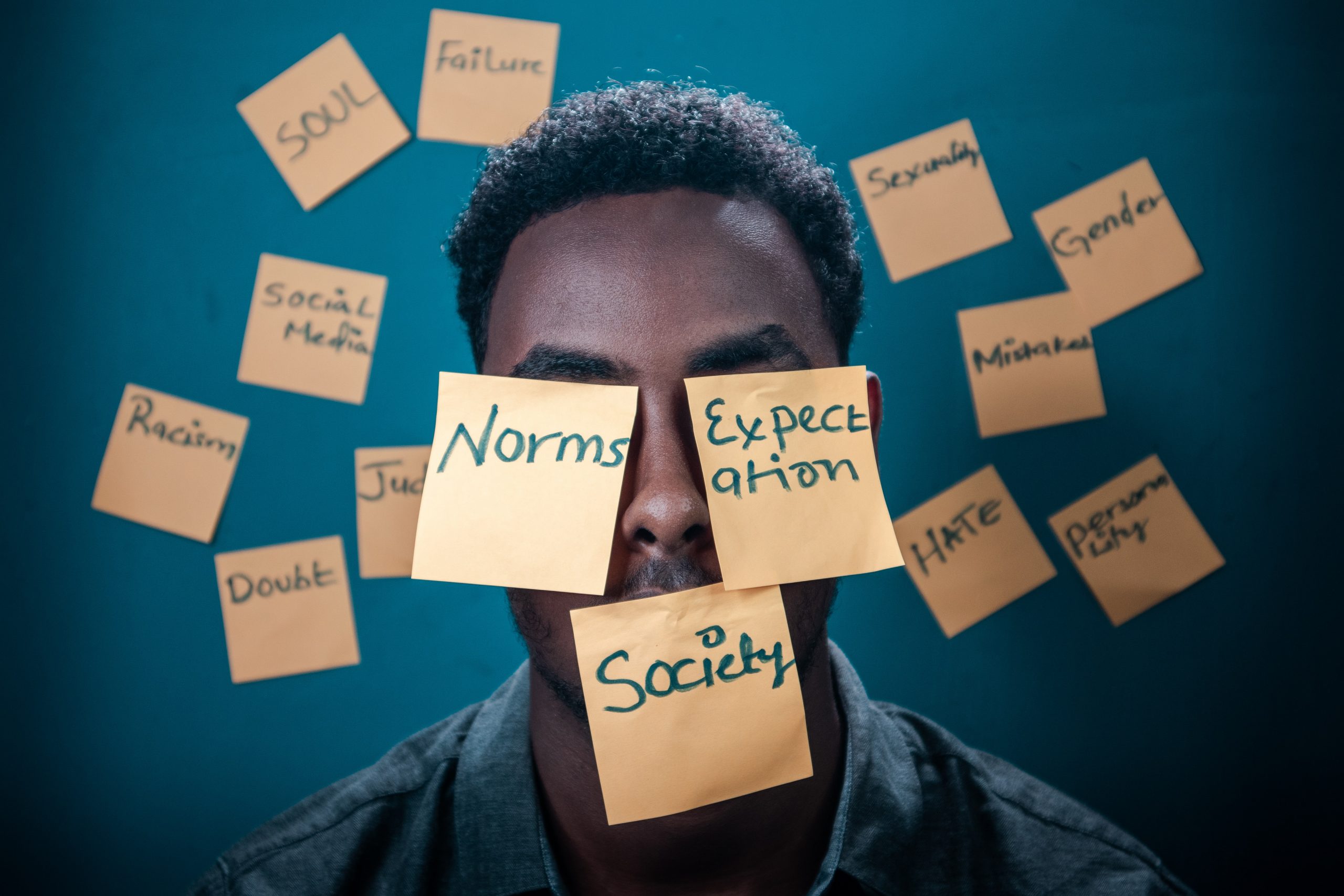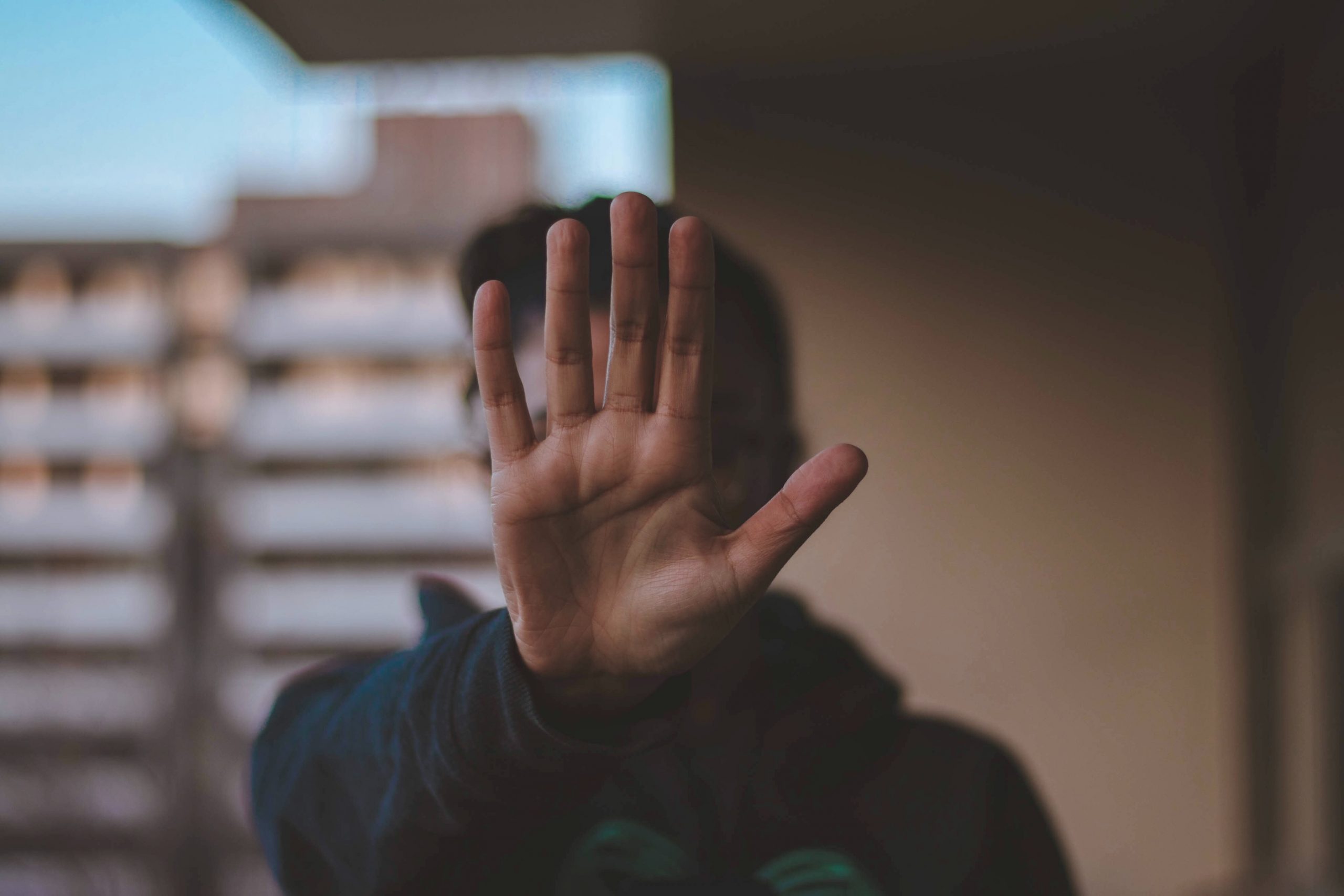What is cancel culture? The concept that a person can become ‘cancelled’ can be referred to culturally excluding them from having a significant public platform or line of work. This subject has been a contentious issue of debate in recent years.
Social Justice?
The emergence of ‘Cancel Culture’ and the concept of cancelling someone follows a predictable pattern: a famous person acts or says something disagreeable; public outcry follows (fuelled in part by politically progressive social media); then in attempts to end their career and minimise their level of prestige, members of society carry out corrective actions such as boycotting their work.
Several believe that cancelling someone by publicly holding them accountable for their ‘wrongdoings’ is an effective important tool of social justice. It’s a means of addressing some of the massive power inequalities that frequently exist between prominent figures with large platforms and audiences and the people and communities that their words and actions may affect through collective action. On the other hand, some argue that cancel culture has devolved into a mindless sort of social media mob justice, rather than being a method of speaking truth to power.
Call to Cancel
Due to the power it wields, the act of cancelling someone can potentially spin out of control, even if it is seen as an effective tool to bring about justice and address concerns that would have been overlooked in the past. Cancel culture is the notion that “no matter how young you were when you transgressed, even if it was a single occurrence, you are no better than your worst moment”. As a result, it disregards a person’s personal growth, whether it be the fact that they sought to educate themselves in order to overcome their ignorance or whether they attempted to modify their behaviour in some manner. ‘Call-Out Culture’, on the other hand, is about calling attention to someone’s wrongdoing and giving them a chance to learn. It is often used interchangeably with ‘cancel culture’.
Cancel culture is about confronting these issues today so that public figures can claim responsibility and be reprimanded for their actions. If those in question deny their actions, continue to behave in questionable ways, or disregard the entire topic, public outrage will only grow. Action must be taken to regain the public’s trust in order for individuals who adore and follow these prominent personalities to find closure and continue to admire and follow them. Calling someone out always has a rationale. It doesn’t label a person or marginalise them from society without taking their thoughts into account. Cancelling someone, however, is performed carelessly and without reason, therefore can be seen as a bad approach to fight for justice.

Examples of cancel culture:
- Piers Morgan: Following Meghan Markle and Prince Harry’s departure from the Royal Family.
- JK. Rowling: After making transphobic comments on Twitter.
- Sia: Due to her controversial choice of casting and lack of research for her film about disability.
- Justin Timberlake: With regards to his 2004 performance with Janet Jackson and his treatment of Britney Spears following their breakup in 2002.
- Stephen Colbert: Briefly cancelled for tweeting racist comments about the Asian community, resulting in the trending hashtag of #CancelColbert.
- Ellen DeGeneres: For creating a toxic work environment as a television host.
- Roy ‘Chubby’ Brown: The 76-year-old comedian who has previously used racial slurs, including the n-word, and jokes about AIDS, in his shows.
- Carson King: Raised more than $1 million for a children’s hospital through beer commission but his relationship with the beer company ended due to backlash over two offensive tweets he posted in 2012 at the age of 16.
- Shane Dawson: After a few of his old racist YouTube videos resurfaced.
- The Oscars: The Awards Academy was boycotted in 2015 after people recognised its lack of diversity. This resulted in real social change (- the Academy set the record for most wins by Black nominees in history in 2019).
How it impacts mental health
Cancelling a person can, unfortunately, lead to the same effects as bullying. It can make someone feel socially alienated, ostracised and lonesome. This, in turn, can cause greater instances of anxiety and depression. By cutting off all forms of communication with the person being cancelled its depriving them of the chance to learn and grow from their mistakes. It can make someone feel as if they have been abandoned and shunned from the world without having been given the chance to apologise or own up to their actions After all, to truly grow and become a better person, you must be able to recognise when you’ve made a mistake, correct it, and take the necessary steps to avoid making the same mistake again.
For example, some may argue that cancel culture helped to fuel the death of Caroline Flack. While it cannot be found accountable for every influencer’s suicide, it does play a significant role in damaging vulnerable people’s mental health. Flack was receiving hate online when news spread that she would be prosecuted for an alleged assault on her boyfriend. Without knowing the full extent of her situation, many started to boycott Love Island and cancel Flack. “Cancel culture often denies the cancelled individual the most basic of human opportunities: to apologise and to be absolved,” argues Kimberley Wilson psychologist to Vogue.

Cancelling cancel culture
Long-standing disparities have been brought to light as a result of dealing with COVID-19. These include racial and socioeconomic inequalities that contribute to unacceptably bad health outcomes. Cancel culture’s reliance on the desires and wills of the people implies that if we speak independently, we will not be able to move ahead collectively. We need to redefine the parameters of harm, since being offended should never be a cause to restrict people’s freedom of speech. To do more to comprehend the knowledge and perspectives that lead to different viewpoints on freedom, rights, and responsibilities. We need to be able to make mistakes and apologise, as well as instil respect, tolerance, and forgiveness.
It’s essential to keep in mind that individuals behave differently even when they’re online. At the same time, social media may give anonymity and prominence, which can be a complicated atmosphere. We shouldn’t deduce broad themes from online behaviour unless that setting is replicated in real life. It is also worth remembering that context is always significant, and we shouldn’t rush to judgment. When we can disagree respectfully, society benefits.
Flexibility, compassion, and understanding are all necessary for good mental health. Don’t give in to online social pressure when it comes to cancelling — conduct your own research and let individuals apologise. We’ve all made mistakes and said or done things we later regret. Even on the internet, we all deserve second chances.

Apprehend or amend, don’t cancel!
Cancel culture commonly preaches about how normal citizens are given power, allowing them to hold politicians, celebrities, and businesses accountable for their actions. As a result rather than being more welcoming of one another, many of us have decided to dismiss those who hold different views. In turn an atmosphere of fear and caution has emerged, obstructing free expression and speech. If the entire world knew everything that people had done or said in the past, it is safe to assume that everyone on the planet would be cancelled. In order to develop and learn as a global community, we must welcome diversity and open conversations.
we must adopt a more call out culture.
We must cancel the cancel culture.

